CCJ to Make Determination in GOB and LPG Companies Dispute
Today, the Caribbean Court of Justice wrapped up a two-day hearing in a legal battle between the Government of Belize and four private liquified petroleum gas (LPG) companies. The government is challenging a 2024 Court of Appeal decision that found it violated the companies’ constitutional rights to work and property by preventing them from importing LPG into Belize. This dispute stems from a 2019 law that established National Gas Company Limited as the sole importer of LPG in the country. Senior counsels Eamon Courtenay, Edward Fitzgerald, Angeline Welch, and King’s Counsel Andrew Marshalleck represented the appellants. On the other side, Senior Counsels Godfrey Smith and Douglas Mendes appeared for the LPG companies. News Five’s Paul Lopez has more on this story.
Paul Lopez, Reporting
Over two days, the Caribbean Court of Justice listened to ten hours of arguments in the legal dispute between the Government of Belize and four private liquefied petroleum gas (LPG) companies. Senior Counsel Eamon Courtenay kicked things off, making the first submissions on behalf of the Attorney General of Belize.
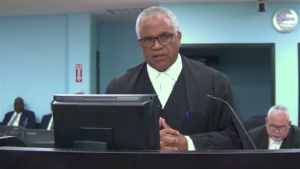
Eamon Courtenay
Eamon Courtenay, Attorney-At-Law
“There is an insinuation that government was acting on bad faith and ill will in seeking to put the respondents out of business. That is not so, the amendment act is a clear piece of evidence that the government was not intending to put them out of business. The government was intending to move the supply of LPG from road to sea that advance the purpose.”
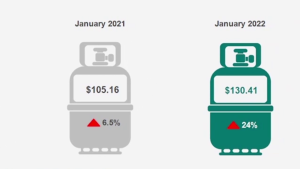 In the early stages of the legal battle, when the four companies were up in arms over NGC’s operations, Parliament stepped in and amended the National Liquefied Petroleum Gas Project Act.
In the early stages of the legal battle, when the four companies were up in arms over NGC’s operations, Parliament stepped in and amended the National Liquefied Petroleum Gas Project Act.
Eamon Courtenay
“The government leveled the playing field on the importation side and provided the right for someone to apply for a license to import LPG through an approved facility.”
However, the law only approves facilities with a storage capacity of one point five million gallons. The LPG companies argue that this requirement isn’t economically feasible for them. Attorney Douglas Mendes, representing his clients, claimed that while there’s an option for these companies to import through NGC’s facility, it’s just a pretense.
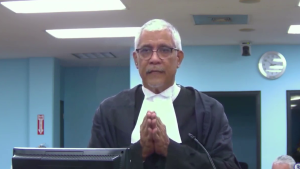
Douglas Mendez
Douglas Mendez, Attorney-At-Law
“By imposing impossible or commercial unviable conditions on entering the market you in effect maintain the monopoly. That is the point, because the monopoly still exists, because you have on the face of it, it is written in the act that you are permitted entry, but you really can’t because it is financially prohibitive as the evidence states to build the one point five million dollars plant and it would not may any sense to have us import through the NGC terminal when that relationship is totally unregulated.”
When the National Gas Company Limited was established, a decision was taken to import LPG exclusively by sea from the U.S to the company’s port facility. This brought an end to the trucking system that the private companies had in place. Attorney for the appellants, Senior Counsel Angeline Welch, argued that this approach decreases the risk supply shortages, provides for cheaper gas, and places the supply chain in the hands of Belizeans.
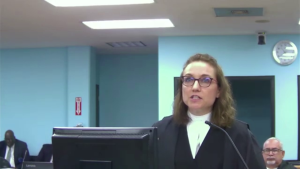
Angeline Welch
Angeline Welch, Attorney-At-Law
“The LPG was shipped to ports in Guatemala and Honduras and El Salvador, and it was trucked into Belize. By the time it was trucked into Belize the end costumer in Belize was Mount Belview price and the cost of those terminals and the transportation and any profit arrangements. The supply chain was operated and controlled by sister companies of the LPG companies. So those cost for the terminal and transportation and any other profit that was made was for that oligarchy which existed before the legislation.”
But the attorney for the four companies, Godfrey Smith, argues that the move violates his clients’ right to work.
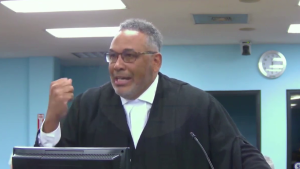
Godfrey Smith
Godfrey Smith, Attorney-At-Law
“The right is hindered. It is fettered. What the constitution guarantees to the respondents is that you have an unfettered, unhindered right to engage in a business or trade that you freely choose. So that they freely choose importation. At the end of the day we have lost wholesale business, forty-five percent of that. And that is an aspect of the business that you have a right to freely engage in.”
After a long nine-hour hearing, Senior Counsel Eamon Courtenay wrapped up his remarks to the court by addressing Mendes’ claim that the new law is just for show.
Eamon Courtenay
“Mr. Mendez took the liberty of alleging that the act and amendment was a pretense by the government to fake the fact that it was opening the market. A simple read of the legislation will show that it was the intention of the government to liberate the market on the conditions set out there. There is absolutely no basis to support the allegation, and I urge this court to reject it out of hand.”
In his closing statement, Mendes requested that the court consider the playing field is leveled.
Douglas Mendes
“Has the legislation treated the respondents and NGC in an even-handed manner? That is basically what I am asking. You have to look at what are the attributes relative to meeting the requirements of a one point five-million-gallon storage plant. What are the comparable circumstances relative to that requirement and the answer is they have all the benefits.”
Reporting for News Five, I am Paul Lopez.





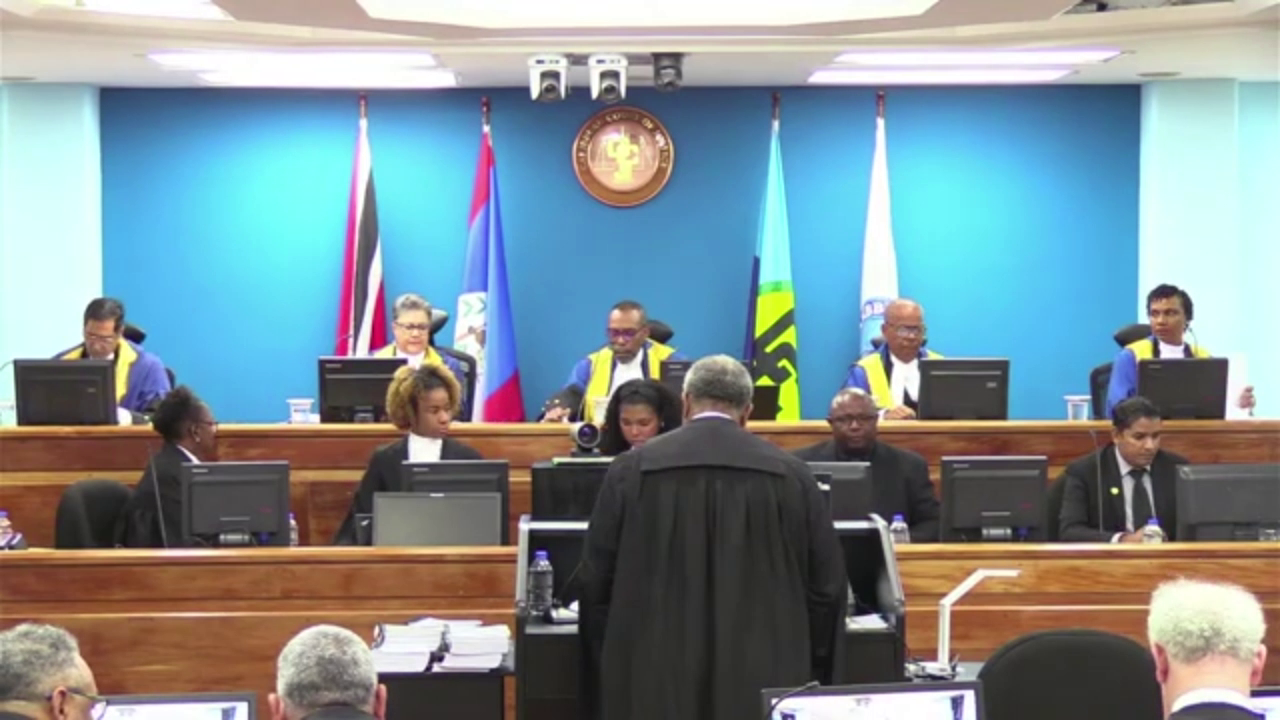

Facebook Comments